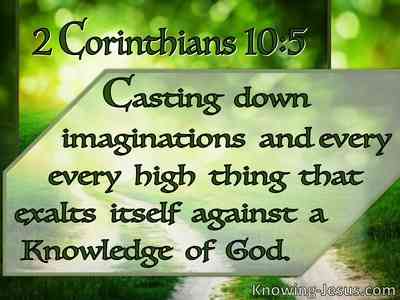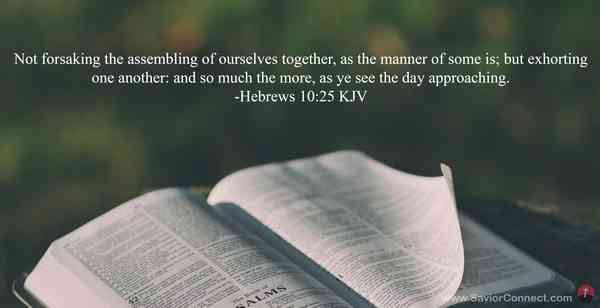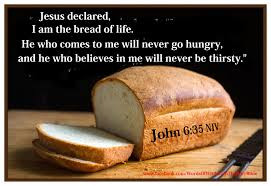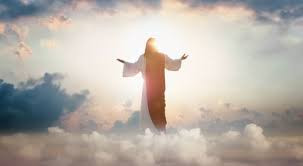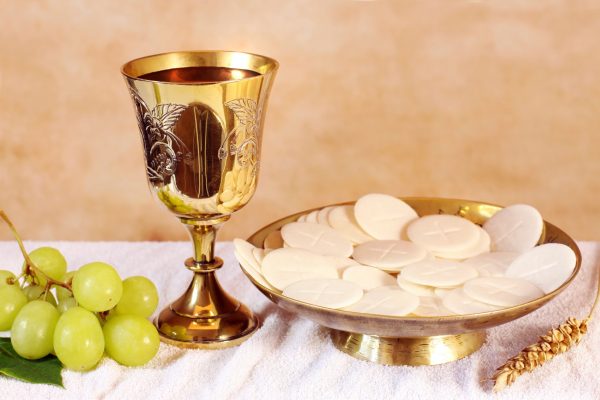
As a youth, I was made to attend some bible lessons (catechism) before I could receive and eat of the “holy body of Christ”, which is known as the Holy Communion in religious circles. Simultaneously, I would also qualify to drink of the “blood of Christ”, represented by wine.
The only thing I learnt from the lessons, if I can recall correctly, was that the bread represented the body of Christ and the wine represented his blood, plus that he died for our sins.
These are the basics that are still taught to our ordinary Christian folks. What Christ’s body or flesh and his blood signifies is left untold very often. It is imperative that people should be made to understand the background to the values of both.
If we trace back to our earliest scriptures, we will find that the first mention of sacrifices/offerings is found in the first book of the Bible, Genesis. In chapter 22, we have the story of how God tested Abraham’s faith by instructing him to offer his beloved son Isaac as a sacrifice. Verses 1-2 read: God tested Abraham and said to him, “Abraham!” And he replied, “Here I am”.
God said, “Take your son, your only son Isaac, whom you love, and go to the land of Mori’ah, and offer him there as a burnt offering upon one of the mountains of which I shall tell you”. The story has a happy ending in that after God was satisfied by Abraham’s faith, because of his compliance, he provided a ram (male sheep) to replace Isaac as the sacrifice.
Let’s understand what the Lord meant by the “burnt offering”. At the same time, let’s also understand the significance and value of the blood offering and also the bread aspect of the flesh. After God had anointed the house of Levi, led by Aaron and his sons, to act as priests to minister in holy places of worship and after their ordination, He gave the following instructions, (Exodus 29: 10-12): “Then you shall bring a bull (without blemish) before the tent of meeting. Aaron and his sons shall lay their hands upon the head of the bull, and you shall kill the bull before the Lord, at the door of the tent of meeting, and shall take part of the blood of the bull and put it upon the horns of the altar with your finger, and the rest of the blood you shall pour out at the base of the altar”.
Beginning with the blood, why is it of special value to the Lord our God? If we go back to the scriptural archives, He instructs Noah after the floods (Genesis 9: 3-4) “Every moving thing that moves shall be food for you; and as I gave you the green plants, I give you everything.
Only you shall not eat flesh with its life, that is, its blood”. In Leviticus 17: 11, God gives us the significance of the blood, saying; “For the life of the flesh is in the blood; and I have given it for you upon the altar to make atonement for your souls; for it is the blood that makes atonement, by reason of the life”.
- Chamisa under fire over US$120K donation
- Mavhunga puts DeMbare into Chibuku quarterfinals
- Pension funds bet on Cabora Bassa oilfields
- Councils defy govt fire tender directive
Keep Reading
Strange as it may be, this seems contrary to our “drinking of the blood of Christ”, the Lord proceeds to say, “Therefore, I have said to the people of Israel, no person among you shall eat blood, neither shall any stranger nor sojourn among you eat blood”. The question to ask would be why Jesus then instructs us to drink of His blood.
God the Father tells us that life is in the blood. It is a fact because we all know that food and oxygen are carried through the blood. It’s the simple truth. We also know that God created life and consequently all life belongs to God. In that vein, since the blood is the life, the Lord requires the sacrifice of a life as a covenant to make atonement for our souls.
Since the blood carries life, blood makes reparation for our sins. It pays for the forgiveness of our sins. Like in Abraham’s case, God indeed proceeded to provide us with His own Son’s blood through Jesus Christ’s death, to make atonement for our sins.
By dying on the cross, Christ was thus sacrificing his own blood for the forgiveness of our sins. Jesus never instructed us to drink of the real blood.
That would be in contravention of his Father’s directive on the consumption of blood. He substituted his actual blood and used wine in its place as a symbol of remembrance of his blood sacrifice, just like what his Father did by substituting the life of Isaac, Abraham’s son, with a ram. Jesus represents the sacrificial lamb for mankind, as the Son of Father. A lamb is the young of a sheep.
At his last supper with his disciples (Matthew 26: 26-28), Jesus took bread, and blessed it, and broke it, and gave it to the disciples and said, “Take, eat; this is my body”. And he then took a cup, and when he had given thanks, he gave it to them, saying, “Drink of it, all of you, for this is my blood of the covenant, which is poured out for many for the forgiveness of sins.” Having spoken on the significance of the blood sacrifice, let us look at the eating of the bread as a representation of the flesh.
Exodus 29: 14 continues speaking of what has to be done with the flesh and its purpose. God spoke, “But the flesh of the bull and its skin, and its dung, you shall burn with fire outside the camp; it is a sin offering”. The burning of the flesh or body of animal as a sin offering represents what is termed as the burnt offering in the scriptures.
While blood represents the atonement or forgiveness or sins by washing them away, the body or flesh is the sin offering, as the food or bread for the Lord, to give Him a pleasing odour (Leviticus 1: 9). On eating of the flesh of sacrifices He directed, “The priest who offers it for sin shall eat it; in a holy place it shall be eaten in the court of the tent of meeting” (Leviticus 6: 26).
In the same manner, Jesus Christ made the wine to be a representation of his blood, he also made the bread (holy communion) to be a representation of the flesh, in fulfilment of his Father’s ritual requirements for the forgiveness and washing away of our sins.
A question to also ask is while God the Father directed that the flesh be eaten only by the priests, why should Christ then direct everyone to eat of his body? By telling us to do these things, He was reminding us and directing us to fulfil the virtues of His Father’s ceremonial law on sacrifices, and of the atonement of our sins. By surrendering his life on the cross for us, Jesus was fulfilling his Father’s covenant with mankind.
l I would like to invite those who wish to train and be certified as ministers of religion through an internationally-recognised training institute. to contact me on 0771 260 195 or Dr. Oneas Mufandaedza on 0783 687 395. There is an added option to also train and be certified in agricultural skills.

